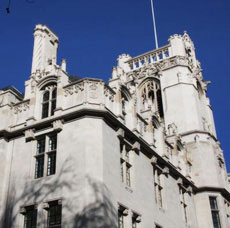Government has no further right of appeal over Court of Appeal July judgment finding DFT to be systemically unfair and unjust
Detention Action reported today that the Supreme Court has refused the Government permission to appeal against the Court of Appeal's July 29th judgement which found the Detained Fast Track (DFT) asylum appeals process to be unlawful.
 The Lord Chancellor v Detention Action [2015] EWCA Civ 840 (available here) found that the Fast Track Rules (FTR) governing the appeals process were "systemically unfair and unjust" because "the time limits are so tight as to make it impossible for there to be a fair hearing of appeals in a significant number of cases."
The Lord Chancellor v Detention Action [2015] EWCA Civ 840 (available here) found that the Fast Track Rules (FTR) governing the appeals process were "systemically unfair and unjust" because "the time limits are so tight as to make it impossible for there to be a fair hearing of appeals in a significant number of cases."
Following the Supreme Court's refusal of an appeal, Detention Action says that the Court of Appeal ruling is now definitive, thus bringing the lengthy legal battle with the Home Office over operation of the DFT to an end.
Detention Action Director Jerome Phelps was quoted as saying: "After more than two years of litigation, we are delighted that the courts have now given a definitive verdict on an asylum detention system that has for many years been a stain on the UK's reputation. We hope that the government will respect this judgement and seek alternative ways to process asylum claims quickly and fairly, so that no more asylum-seekers find themselves locked up simply for seeking sanctuary here."
As we reported following the Court of Appeal judgment, Immigration Minister James Brokenshire announced on 2 July 2015 that the fast track system would be suspended following a number of court rulings that it was operating unlawfully, though he said he hoped the system would only be suspended for a short time.
According to Detention Action, the DFT system was detaining up to one in four asylum seekers for the duration of their asylum claims and had a 99% rejection rate for those claims.